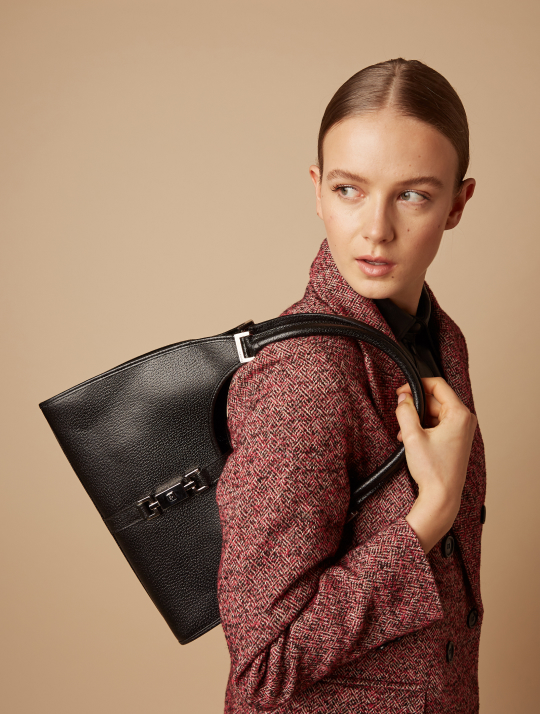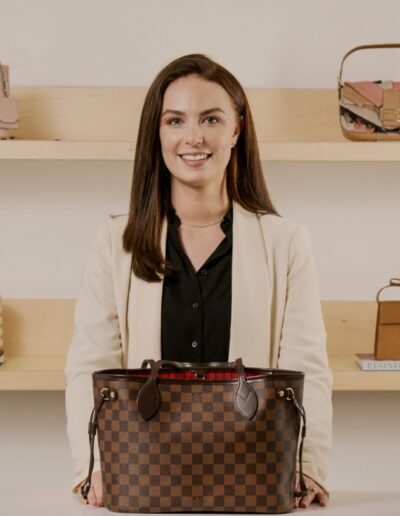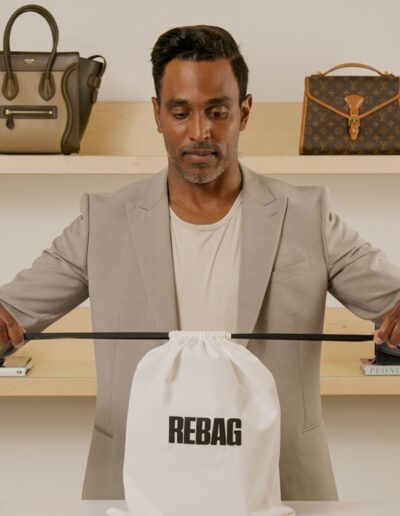REPORT
Checking in on Covid-19
& The Fashion Resale Industry
By AKS, Mar 31, 2021

It has been just over one year since the novel coronavirus
shook up the world, including our global economy. Last year, Rebag predicted how Covid-19 may affect buyers and sellers in the resale market – but where do the fashion resale industry and consumer behaviors stand now? Let’s dive into the more recent findings that may shed light on the status of our industry.
The Status of the Fashion Resale Industry
Undoubtedly, 2020 will go down in the history books as one of the worst years in fashion industry records, with numerous companies posting major losses as brick-and-mortar stores closed, fashion events were canceled, and consumer shopping habits drastically changed. According to the “State of Fashion 2021” report by McKinsey and Company and the Business of Fashion, predictions of a full pre-Covid recovery are not expected until 2025, assuming the vaccine leads to a rapid slowdown in virus transmission and a recession can be avoided.
While the retail world suffered from the lack of in-person shopping, the resale marketplace has been flourishing. The luxury resale market has always been considered secondary to the primary retail market, and traditionally has been looked down upon by the luxury world, but recent growing demand for pre-owned luxury goods has made resale one of the fastest growing sectors in luxury. According to a report from the Boston Consulting Group, it has been estimated that “luxury resale will grow at an average rate of 12% per year through 2021 to become a $36 billion market with a 9% share of the personal luxury goods segment – quite a bit larger than the 3% growth rate estimate for the main luxury market for the same period of time.”
As people sheltered at home and travel was restricted, spending on experiences was replaced with spending on material goods, plus home improvement and redecorating. For those looking to refresh their closets, luxury resale has been a fantastic way to finally make those investment purchases, as well as a way to make money and supplement income. Since the pandemic started, online resale sites have seen major growth in both selling and purchasing – the Kon-Marie decluttering trend was instrumental in flooding platforms with gently used items waiting to reenter the market. This growth was mainly due to a younger consumer base that rejected fast-fashion for a more sustainable and affordable way to shop. Shopping resale helps combat environmental pollution and aids in reducing consumption by keeping items out of landfills and putting them back into circulation. This movement towards sustainability has most likely been a large contributor to the ongoing growth of luxury resale in 2020
It would seem completely illogical that during a pandemic year, high-value accessories like watches, jewelry, and bags would be in high demand, but these first-class luxury items are well crafted from top-quality materials and have long term stable value. Think of grandpa’s Rolex or grandma’s Chanel’s Classic Double Flap Bag, a classic, heritage piece that will be as beautiful today as it was the day it was sold. Savvy shoppers are looking to invest in fewer items, but of elevated craftsmanship, as the well-crafted pieces will stand the test of time. Heritage brands like Hermès, Chanel, Van Cleef and Arpels, and Rolex have proven to have excellent resale values that might appreciate in the future. Rebag CEO and founder Charles Gorra recounted to Vogue the winning styles of 2020, emphasizing the value of investment-worthy pieces: “We get a lot of data on the trends that we saw, what has and hasn’t sold, using an algorithm that lets us know instantly what people are buying. This [2020], there were some constants and a few novelties. Handbag resale is powered by the likes of Hermès and Louis Vuitton. We saw that all of their classic models have sold really well. That’s very much the impact of COVID; when the economy becomes more challenging, the consumer becomes more focused and investment conscious.”
As we head deeper into 2021, the quiet luxury trend of laid-back luxe is still staying strong. The continuation of sophisticated, simplified luxury (perfect to go with our luxe sweatpants!) translates into soft, slouchy bags and classic jewelry pieces that are not only smart investments, but add style to our current relaxed way of dressing. And because luxury implies value and craftsmanship, by buying that heritage Hermes Birkin or timeless Harry Winston jewelry piece, you can have peace of mind that your investment will be stable, and in the long run, worth it.



